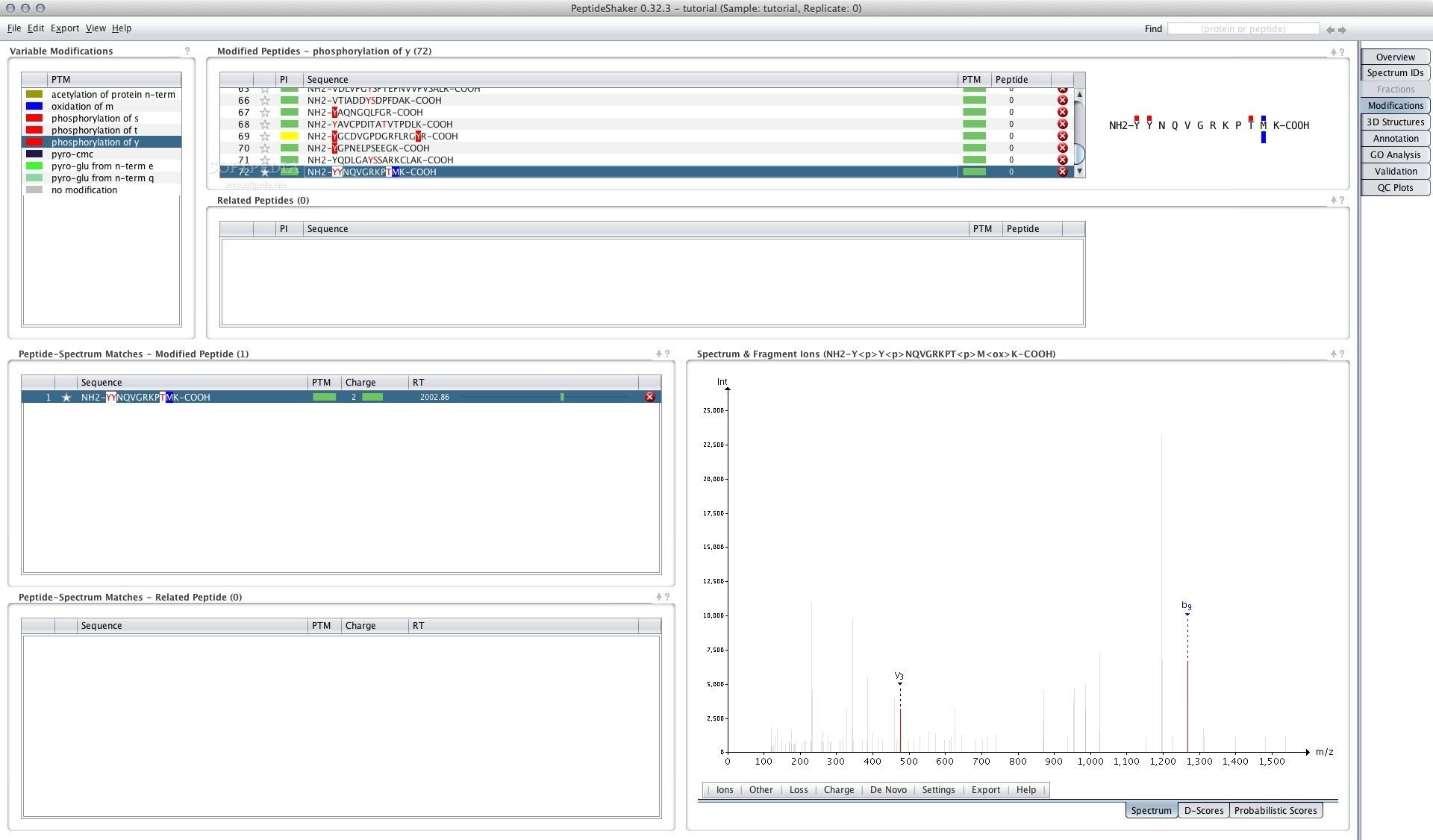

In addition, efforts can be concentrated in the development of visualization and analysis tools supporting the data standards, rather than the wide variety of data formats available in the field.
Peptideshaker github software#
The increasing adoption of standard data formats ( 11) facilitates the validation, reproducibility, and comparability of results produced by different instruments and software platforms. However, this information can be linked to mass spectra data available in external file formats (including the data standard mzML).

It is important to note that, while processed results are stored, the corresponding mass spectra are not stored in the mzIdentML and mzTab files. In addition, recently, the tab-delimited format mzTab ( 10) was developed to represent both identification and quantification results in the same file, enabling the reporting of the experimental results at different levels of detail. The mzIdentML format, among other supported features, can represent protein-inference-related information using protein ambiguity groups, provides detailed ranking of peptide spectrum matches (PSMs) and can store rich metadata about the search parameters used in the analysis. In the context of bottom-up MS/MS approaches, the most adopted XML-based standards are: mzML ( 8) to store the “primary” MS data (the mass spectra and chromatograms) and mzIdentML ( 9) to report peptide identifications as well as the inferred protein identifications, including posttranslational modifications. In parallel with the PX Consortium, different community open standard formats have been developed over the last few years, under the auspices of the Proteomics Standards Initiative (PSI). At present, it includes the PRoteomics IDEntifications (PRIDE) database ( 5), PeptideAtlas ( 6) and the related resource PeptideAtlas SRM Experiment Library (PASSEL) ( 7) and the Mass Spectrometry Interactive Virtual Environment (MassIVE, ). The ProteomeXchange (PX) Consortium was formally started in 2011 to overcome the challenges in MS proteomics data sharing and dissemination ( 3, 4) by implementing standard pipelines and promoting collaboration, developing an international consortium of major stakeholders in the domain. Additionally, there is a growing perception in the community that sharing data is a good scientific practice and beneficial for the field ( 2). This is due to the guidelines promoted by several scientific journals like Molecular and Cellular Proteomics (MCP) and by funding agencies ( 1). The amount of publicly available mass spectrometry (MS)-based proteomics data is rapidly increasing in quality and quantity. We believe that the PRIDE Inspector Toolsuite represents a milestone in the visualization and quality assessment of proteomics data. The PRIDE Inspector Toolsuite supports the handling and visualization of different experimental output files, ranging from spectra (mzML, mzXML, and the most popular peak lists formats) and peptide and protein identification results (mzIdentML, PRIDE XML, mzTab) to quantification data (mzTab, PRIDE XML), using a modular and extensible set of open-source, cross-platform libraries. The increasing use and popularity of the new Proteomics Standards Initiative (PSI) data standards such as mzIdentML and mzTab, and the diversity of workflows supported by the PX resources, prompted us to design and implement a new suite of algorithms and libraries that would build upon the success of the original PRIDE Inspector and would enable users to visualize and validate PX “complete” submissions. Within the Consortium, PRIDE is focused on supporting submissions of tandem MS data.

The ProteomeXchange (PX) Consortium has been set up to enable a better integration of existing public proteomics repositories, maximizing its benefit to the scientific community through the implementation of standard submission and dissemination pipelines. The initial implementation of the tool focused on visualizing PRIDE data by supporting the PRIDE XML format and a direct access to private (password protected) and public experiments in PRIDE. The original PRIDE Inspector tool was developed as an open source standalone tool to enable the visualization and validation of mass-spectrometry (MS)-based proteomics data before data submission or already publicly available in the Proteomics Identifications (PRIDE) database.


 0 kommentar(er)
0 kommentar(er)
